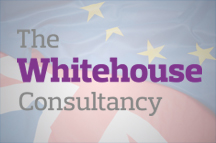 Trump talks up trade
Trump talks up trade
Donald Trump this week slammed the “protectionist” EU and said that work was under way to secure a “major” deal with the UK. Choosing to take to social media to negotiate a trade arrangement Trump tweeted: “Working on major Trade Deal with the United Kingdom. Could be very big & exciting. JOBS! The E.U. is very protectionist with the U.S. STOP!” Meanwhile International Trade Secretary Liam Fox, who is in Washington for talks with US representatives, said that Brexit offered an “unprecedented opportunity” to reshape Britain’s independent trading ambitions. Relations with the US are obviously a high priority for British trade policy with the Trade Secretary pushing for a bilateral trade liberalisation agreement with the US to take effect when the UK departs the EU. Fox’s American hosts appear well disposed to the idea in principle and better access to the US market would go down well among many UK businesses too. The US is currently the UK’s largest single export market and the US is the second largest foreign supplier to the UK.
But back home the Cabinet is split on chlorinated chicken
Back in the UK delivering a co-ordinated Cabinet line on the Brexit trade arrangements is proving increasingly difficult – as was proved this week when a major row broke out about chlorinated chicken. The question of food hygiene standards has come to the fore after claims that the UK could be forced to accept imports of US poultry washed in the chemical as part of a post-Brexit trade deal. The practice is banned under EU regulations, but Downing Street has not ruled out changing the standards once the UK has left the EU. At a media briefing Theresa May’s spokesman would not categorically rule out a change but Michael Gove suggested the opposite on the Today programme. Gove told Nick Robinson that chlorinated chicken is a red line that will not be crossed in the trade talks. Those in the Remain camp have successfully jumped on the story and made Fox’s trip to the US one that has been dominated by poultry chat on a daily basis.
Liam Fox says UK-EU free trade deal a long way off
Staying with trade (and the ubiquitous, this week at least, Liam Fox), only last week Dr Fox announced that a UK-EU free trade deal should in theory be “one of the easiest in human history” but this week said “it would be nice to think we could get a full free trade agreement by the time we get to March 2019, but that would be an optimistic view of recent free trade agreements.” Instead he envisaged an “implementation phase” where the UK was technically outside the EU but continued to abide by its rules on a voluntary basis. In a Q&A after a speech at the American Enterprise Institute, the International Secretary said: "There’s a growing consensus amongst the Cabinet that we will leave the European Union but we will have a transition and implementation phase where we’re outside European law but voluntarily would choose to keep a number of rules to give our businesses, in particular, and our inward investors the stability to understand what the new environment is going to look like.” This answer seemed to confirm that the ‘soft-Brexit’ camp in the Cabinet, led by Chancellor Philip Hammond had won their battle to guarantee a transition period for after the UK leaves.
UK’s future immigration system still up in the air

Immigration Minister, Brandon Lewis, said this week that a new immigration system will be in place by March 2019 when the free movement of people between the EU and UK ends, but there is still lack of clarity about what a new system might look like. Writing in the FT, the Home Secretary, Amber Rudd, noted that the UK would continue to attract the “brightest and best” migrants from across the world suggesting a work permit model for Europeans similar to that which currently operates for non-EEA nationals. It is thought that this would offer greater control than a points-based system with applicants prioritised according to how well they fulfil a set of criteria. But there are concerns that such an approach will not provide a continued supply of low-skilled workers for vital UK industries. The government has commissioned the Migration Advisory Committee to take forward a "detailed assessment" of migration from the EU and EEA. The report is expected in September 2018, six months before Britain is scheduled to formally leave.
Labour in a muddle again on Brexit
Senior Labour figures Keir Starmer and John McDonnell have opened the door to Britain remaining part of the single market and customs union in comments that appear to soften the Party’s position on Brexit. The Shadow Chancellor, John McDonnell, told Labour supporters that all options should be considered to ensure Britain retained the benefits of the single market and customs union. These remarks mark a notable shift on Labour’s general election manifesto, which stated that it wanted to “keep the benefits of the single market” but did not support membership. Whilst most of the chatter in recent weeks has been about cabinet splits and the Tories’ ongoing war over the EU, Labour seems even more confused. Continuing with a “hard Brexit” approach has the danger of alienating many of the young voters that the Party won over at the general election earlier this summer. But Labour leader Jeremy Corbyn knows that officially softening the Party’s stance has capacity to anger Labour supporters in the traditional heartlands who have only recently returned from the UKIP fold.














